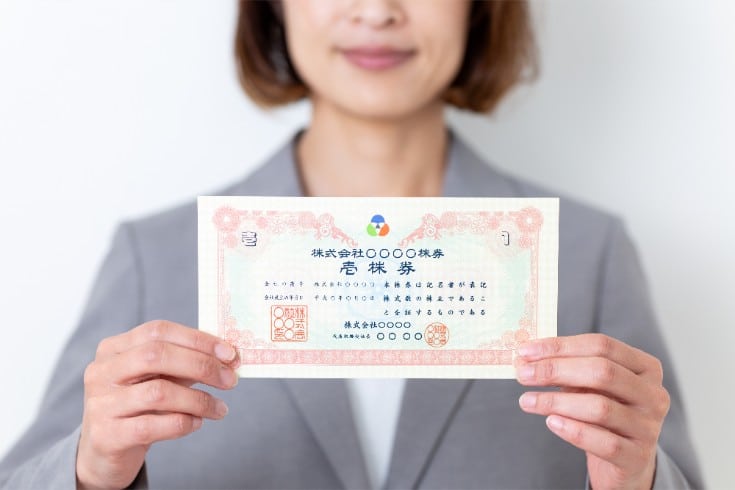Shareholder Rights and Duties under Japanese Corporate Law

In Japan, the joint-stock corporation is a crucial legal entity that forms the foundation of economic activity. The owners of these corporations are the shareholders who hold stocks. Shareholders possess various rights and, at the same time, are subject to specific obligations. For foreign investors and those considering business expansion in Japan, accurately understanding the rights and obligations of shareholders as defined by Japanese Corporate Law is vital for making investment decisions and formulating business strategies. This understanding is essential to avoid unforeseen risks and to maximize opportunities in the Japanese market. In this article, we will provide a detailed explanation of the key rights and obligations of shareholders under Japanese Corporate Law, citing specific articles of the law. Our goal is to equip our readers with reliable knowledge about the legal status of shareholders within the framework of Japanese Corporate Law.
Shareholder Rights: Powers as Owners of a Company Under Japanese Corporate Law
Shareholders possess two main types of rights in relation to the company. The first is ‘self-interest rights,’ aimed at receiving direct economic benefits from the company, and the second is ‘common-interest rights,’ which are intended for participating in or supervising the management of the company. Understanding these classifications is crucial for a deep comprehension of the role of shareholders under Japanese Corporate Law .
Below is a summary of the key rights of shareholders and the related articles of Japanese Corporate Law.
| Type of Right | Article of Japanese Corporate Law | Summary of Rights | Classification of Rights |
| Right to Demand Dividends from Surplus | Article 105, Paragraph 1, Item 1 | The right to receive a dividend from the company’s profits, which are part of the surplus. | Self-Interest Rights |
| Right to Demand Distribution of Residual Property | Article 105, Paragraph 1, Item 2 | The right to receive a distribution of the remaining property when the company is dissolved and liquidated. | Self-Interest Rights |
| Voting Rights at the General Meeting of Shareholders | Article 105, Paragraph 1, Item 3 | The right to exercise voting rights at the general meeting of shareholders, the company’s highest decision-making body. | Common-Interest Rights |
| Right to Make Proposals to the General Meeting of Shareholders | Article 303 | The right to propose agenda items to the company for the general meeting of shareholders. | Common-Interest Rights |
| Right to Inspect and Transcribe the Shareholder Register | Article 125, Paragraph 2 | The right to request inspection and transcription of the shareholder register. | Common-Interest Rights |
| Right to Inspect and Transcribe Accounting Books | Article 433, Paragraph 1 | The right to request inspection and transcription of the company’s accounting books and related documents. | Common-Interest Rights |
| Right to Initiate a Shareholder Derivative Suit | Article 847 | The right to initiate a lawsuit to pursue the responsibility of officers, etc., on behalf of the company. | Common-Interest Rights |
| Right to Demand Injunction Against Directors’ Actions | Article 360 | The right to request an injunction against illegal or ultra vires acts by directors. | Common-Interest Rights |
| Right to Seek Annulment of General Meeting Resolutions | Article 831 | The right to seek annulment in court of general meeting resolutions that violate laws or the articles of incorporation. | Common-Interest Rights |
Rights to Economic Benefits (Self-Interest Rights)
The rights aimed at directly receiving economic benefits from a company are referred to as “self-interest rights.” This is one of the primary motivations for investors to hold shares.
Right to Demand Dividends from Surplus Profits
Shareholders have the right to receive dividends from the surplus profits generated by the company’s business activities. This right is explicitly stipulated in Article 105, Paragraph 1, Item 1 of the Japanese Companies Act. A joint-stock company may distribute dividends from surplus profits to its shareholders (Japanese Companies Act, Article 453). When distributing dividends, the type of dividend property, matters related to the allocation to shareholders, and the effective date of the dividend must be determined by a resolution of the shareholders’ meeting (Japanese Companies Act, Article 454, Paragraph 1).
Even if the dividend property is not monetary, shareholders generally have the right to demand distribution in cash (cash distribution claim right) (Japanese Companies Act, Article 454, Paragraph 3). However, if stipulated in the articles of incorporation, the board of directors may also make interim dividends by resolution (Japanese Companies Act, Article 459). While shareholders typically have the decision-making power regarding dividends, this is not the case if the company’s articles of incorporation grant this authority to the board of directors. This flexible provision indicates that Japanese corporate law allows for a variety of governance structures. Foreign investors should check the articles of incorporation of the companies they invest in to understand whether the dividend decision-making authority lies with the shareholders’ meeting or is entrusted to the board of directors. This enables them to accurately comprehend the extent of their direct involvement in profit distribution.
Right to Demand Distribution of Residual Assets
Upon the dissolution of a company and the completion of its liquidation procedures, if there are residual assets remaining after the repayment of debts, shareholders have the right to receive a distribution of these residual assets. This right is provided for in Article 105, Paragraph 1, Item 2 of the Japanese Companies Act. Even if the residual assets are not monetary, shareholders have the right to demand a cash distribution from the liquidating company (cash distribution claim right) (Japanese Companies Act, Article 505).
The Japanese Companies Act allows for different types of shares to have different rights regarding the distribution of residual assets (Japanese Companies Act, Article 108, Paragraph 1, Item 2). However, shares that do not grant either the right to receive dividends from surplus profits or the right to receive distribution of residual assets are not permitted (Japanese Companies Act, Article 105). This provision establishes the legal minimum that shares should at least accompany some form of economic benefit. In practice, especially in investments in venture companies, preferred shares with “priority rights to residual asset distribution” that distribute a certain multiple of the investment amount are often used. In addition, contractual arrangements called “deemed liquidation clauses” may be stipulated in the articles of incorporation. These clauses treat certain events, such as the sale of a company, as liquidation and guarantee preferential distribution to investors. Foreign investors, especially those involved in venture capital investments, need to carefully review the design of such preferred shares and contractual clauses to understand how they impact economic benefits in addition to statutory rights.
Rights to Participate in and Oversee Company Management (Common Benefit Rights) Under Japanese Corporate Law
The rights that allow shareholders to participate in and oversee the management of a company are referred to as “common benefit rights” in Japan. These rights are essential for ensuring the sound operation of a company.
Voting Rights at Shareholders’ Meetings in Japan
Shareholders have the right to exercise voting rights at the shareholders’ meeting, which is the highest decision-making body of a company. This right is one of the most fundamental common interests rights stipulated in Article 105, Paragraph 1, Item 3 of the Japanese Companies Act. The shareholders’ meeting can make resolutions on matters prescribed by the Japanese Companies Act and those set forth in the articles of incorporation (Japanese Companies Act, Article 295, Paragraphs 1 and 2). In companies with a board of directors, the matters to be resolved at the shareholders’ meeting are limited to those stipulated by the Companies Act or the articles of incorporation (Japanese Companies Act, Article 295, Paragraph 2).
The exercise of voting rights is usually based on the principle of “one share, one vote.” However, the Japanese Companies Act allows for the issuance of shares without voting rights (non-voting shares) as prescribed by the articles of incorporation.
Types and Requirements of Resolutions: The resolutions of the shareholders’ meeting have different requirements depending on their importance.
- Ordinary Resolutions: Except where laws or the articles of incorporation provide otherwise, these are made with the attendance of shareholders holding a majority of the voting rights that can be exercised, and by a majority of the voting rights of the attending shareholders (Japanese Companies Act, Article 309, Paragraph 1). The articles of incorporation can eliminate the quorum requirement, but resolutions regarding the appointment or dismissal of officers must have at least one-third of the voting rights of the shareholders who can exercise their votes (Japanese Companies Act, Article 341).
- Special Resolutions: These are made with the attendance of shareholders holding a majority of the voting rights that can be exercised, and by at least two-thirds of the voting rights of the attending shareholders (Japanese Companies Act, Article 309, Paragraph 2). The articles of incorporation may relax this attendance requirement to one-third. Special resolutions are required for significant corporate decisions such as organizational restructuring, mergers, and business transfers.
- Extraordinary Resolutions: There are also resolutions that require even stricter conditions, such as the approval of more than half of the shareholders who can exercise voting rights (headcount requirement) and at least two-thirds of their voting rights, or the approval of three-quarters of the total voting rights of all shareholders (Japanese Companies Act, Article 309, Paragraphs 3 and 4).
Methods of Exercising Voting Rights: Shareholders can exercise their voting rights by attending the shareholders’ meeting in person, or by written or electronic means. Additionally, if all shareholders express their consent in writing or by electronic record, a “deemed resolution” (or written resolution) can be considered as if a shareholders’ meeting resolution has been made (Japanese Companies Act, Article 319, Paragraph 1).
In Japan, the “unit share system” may be adopted under the Companies Act. This system designates a specific number of shares (e.g., 100 shares) as one unit and grants voting rights to the unit rather than to individual shares. Shares that do not constitute a unit only have economic rights and cannot exercise voting rights or attend shareholders’ meetings. The Tokyo Stock Exchange mandates that listed companies set the unit of listed shares at 100 shares. This system represents a significant difference for foreign investors accustomed to the strict “one share, one vote” principle. For example, if they hold less than one unit of shares, they cannot exercise voting rights, even if they own a substantial number of shares, and thus cannot directly influence the company’s governance. Therefore, foreign investors must ensure that they acquire enough shares to meet the unit share threshold of the company in which they invest to exercise voting rights.
Shareholder Proposal Rights Under Japanese Corporate Law
Shareholders have the right to propose items (agenda topics) for discussion at the general shareholders’ meeting to the directors, as stipulated in Article 303, Paragraph 1 of the Japanese Companies Act (会社法第303条第1項 ). This is a vital means for shareholders to actively engage in the management of the company and reflect their opinions. In public companies, to exercise this right, shareholders must, in principle, continuously hold at least 1/100 of the total voting rights or at least 300 voting rights for six months prior to the proposal, as per Article 303, Paragraph 2 of the Japanese Companies Act (会社法第303条第2項 ).
The 2019 amendment to the Companies Act introduced a provision that limits the number of proposals a single shareholder can submit at the same general shareholders’ meeting to ten (Article 305, Paragraph 4 of the Japanese Companies Act (会社法第305条第4項 )). This measure aims to prevent the abusive exercise of shareholder proposal rights. In the past, there have been instances where a single shareholder submitted an excessive number of proposals, leading to an undue increase in the time for deliberation at the general shareholders’ meeting and the costs for the company to review and prepare the notice of convocation, thereby hindering the decision-making function of the meeting. Although there was a debate on revising the requirement for the number of voting rights necessary for a shareholder proposal (300 or more), it ultimately remained unchanged. The limitation on the number of proposals was deemed sufficient to eliminate certain abuses. This amendment demonstrates that Japanese corporate law values a balance between respecting shareholder rights and ensuring the efficient operation of the company. It is essential for foreign investors engaging in shareholder activism to understand these legal restrictions and the policy intent behind them, which is to ensure the efficiency of company operations. Excessive proposal submissions may be considered an abuse of rights and could be rejected.
Rights to Inspect and Request Copies of Information
Shareholders have the right to inspect and request copies of specific information and documents from a company to ensure transparency and oversee management.
- Right to Inspect and Request Copies of the Shareholder Register: Shareholders can request to inspect and copy the shareholder register at any time during the company’s business hours. This right can be exercised by anyone who owns even a single share (Article 125, Paragraph 2 of the Japanese Companies Act). However, the company can refuse this request if there are specific reasons, such as purposes other than ensuring or exercising rights, hindering the company’s operations, harming the common interests of shareholders, or intending to profit by informing third parties (Article 125, Paragraph 3 of the Japanese Companies Act).
- Right to Inspect and Request Copies of Accounting Books: Shareholders can request to inspect and copy the company’s accounting books or related documents. To exercise this right, as a general rule, one must hold at least one-third of the total voting rights of all shareholders (Article 433, Paragraph 1 of the Japanese Companies Act).
- Right to Inspect and Request Copies of Financial Statements: Shareholders can request to inspect and receive copies of financial documents (balance sheets, income statements, etc.) and business reports (Article 442, Paragraph 3 of the Japanese Companies Act).
- Right to Inspect and Request Copies of Board of Directors’ Meeting Minutes: In companies with a board of directors, shareholders can request to inspect and copy the minutes of board meetings with the permission of the court (Article 371, Paragraph 2 of the Japanese Companies Act).
The right of shareholders to request information is crucial for enhancing the transparency of a company and supervising its management. However, there are certain restrictions on its exercise. The company can refuse a request if it is made for purposes other than investigating the protection or exercise of shareholder rights, if it hinders the company’s operations and harms the common interests of shareholders, if the requester is engaged in a business that is in substantial competition with the company, or if the intent is to profit by informing third parties. In particular, even if the requester does not have a subjective intention to use the information for competition, the company can refuse the request if it is objectively recognized that the requester is in competition with the company (Supreme Court decision, January 15, 2009 (Heisei 21)). This indicates that Japanese courts strictly scrutinize the exercise of shareholders’ rights to request information to prevent potential harm to the legitimate business interests of the company and demonstrate a protective stance towards the company. Foreign investors must be careful to ensure that their requests for information are limited to the legitimate exercise of their rights as shareholders and do not unfairly disadvantage the company, paying close attention to these grounds for refusal.
Rights to Pursue Liability of Directors and Officers Under Japanese Corporate Law
- Shareholder Derivative Action: Shareholders have the right to initiate a derivative lawsuit on behalf of the company to pursue the liability of its officers (such as directors and auditors) under Article 847 of the Japanese Companies Act. This is a crucial mechanism for shareholders to hold officers accountable for damages caused to the company when the company itself does not file a lawsuit.
- Injunction Against Directors’ Actions: If a director engages in actions outside the scope of the company’s objectives or violates laws or the articles of incorporation, or if there is a risk of such actions, shareholders can demand that the director cease these actions under Article 360 of the Japanese Companies Act.
Challenging Shareholders’ Meeting Resolutions Under Japanese Corporate Law
If a shareholders’ meeting resolution violates laws, the company’s articles of incorporation, is significantly unfair, or if the content of the resolution itself breaches the articles of incorporation, or if a party with a special interest has exercised their voting rights resulting in a significantly unjust resolution, shareholders may file a lawsuit to cancel the resolution under Article 831, Paragraph 1 of the Japanese Companies Act. This lawsuit must generally be filed within three months from the date of the resolution (Japanese Companies Act, Article 831, Paragraph 1).
Japanese courts conduct a strict review of the legality and fairness of shareholders’ meeting resolutions. For example, in one case, the Tokyo District Court on March 8, 2019 (Reiwa 1), recognized the cancellation of a shareholders’ meeting resolution due to procedural defects and unfair exercise of voting rights, such as when the voting rights were exercised by an acting officer contrary to prior instructions, or when the voting rights of shareholders present at the meeting were improperly handled. This case demonstrates that even seemingly minor procedural issues or acts of authority by agents, if deemed to have a significant impact on the fairness of the resolution, could render the resolution invalid. This has profound implications for corporate governance and the protection of minority shareholders. Foreign investors should understand that the operation of shareholders’ meetings in Japanese companies is subject to strict legal requirements and detailed scrutiny by the courts, and they should be aware that such legal remedies are available if their rights are unjustly infringed upon.
Shareholders’ Duties and Responsibilities: The Principle of Limited Liability Under Japanese Corporate Law
The Principle of Limited Liability
One of the most significant features of shareholders in a Japanese corporation is the “Principle of Limited Liability.” This principle dictates that the liability of shareholders towards the company is limited to the amount of the stock subscription price (Article 104 of the Japanese Companies Act). Shareholders are not directly liable to the company’s creditors for debts beyond their own investment, even if the company cannot repay its debts. This “indirect limited liability” offers significant protection for investors.
The principle of limited liability is one of the greatest advantages of establishing a corporation in Japan. In contrast, sole proprietors are personally liable for debts and are obligated to pay them unless they declare bankruptcy. However, shareholders of a corporation are only liable up to the amount they have invested, ensuring that their personal assets are not at risk due to the company’s debts. This principle plays a vital role in encouraging external investment and invigorating corporate activities. For foreign investors, the principle of limited liability serves as a fundamental legal protection that significantly reduces financial risks associated with investing in the Japanese market.
As a rule, shareholders have no obligation to make additional contributions. However, additional contributions can be stipulated in shareholder agreements with the consent of all shareholders, in which case the agreement becomes effective. The invested funds belong to the company, and shareholders generally cannot demand their return. To recover their investment, shareholders must resort to methods such as transferring their shares.
Other Obligations
Prohibition of Providing Benefits
Under Japanese Corporate Law, a joint-stock company must not provide benefits related to the exercise of shareholder rights to any person (Article 120, Paragraph 1 of the Japanese Companies Act). This provision aims to eliminate undue influences, such as those from ‘sokaiya’ corporate extortionists, that disrupt the smooth operation of shareholder meetings. The prohibition broadly applies to the provision of financial benefits, including passive benefits such as debt forgiveness. Furthermore, if benefits are provided to specific shareholders, it is presumed that these benefits relate to the exercise of shareholder rights (Article 120, Paragraph 2 of the Japanese Companies Act).
Should illegal benefits be provided, the recipient is obligated to return those benefits to the company, regardless of whether they acted in good faith or not. Additionally, directors and executive officers involved in the provision of benefits are jointly and severally liable to pay the company an amount equivalent to the benefits (Article 120, Paragraph 3 of the Japanese Companies Act). The prohibition of benefit provision is extensive in its application, and the liabilities for violations are strict. Even without malicious intent, providing financial benefits related to the exercise of shareholder rights can contravene this provision. This stringent regulation reflects the strong stance of Japanese Corporate Law in ensuring the fairness of shareholder decision-making and eliminating undue influences. Foreign companies and investors conducting business in Japan must be fully aware that any kind of benefit provided to shareholders, even if well-intentioned, may violate Article 120 of the Japanese Companies Act, and cautious handling is required.
Duties of Controlling Shareholders
Japanese Corporate Law does not have explicit provisions or established case law that imposes a direct ‘fiduciary duty’ on controlling shareholders towards minority shareholders. This is a point of divergence from jurisdictions like the United States, where common law has evolved. However, the Japanese Corporate Governance Code stipulates that “controlling shareholders must respect the interests of the company and the common interests of shareholders, and must not treat minority shareholders unfairly,” requiring listed companies with controlling shareholders to establish governance systems to protect the interests of minority shareholders.
The legal framework in Japan, where controlling shareholders do not have a direct fiduciary duty to minority shareholders, may be unfamiliar to investors from common law jurisdictions. However, this does not mean that minority shareholders are unprotected. Japanese Corporate Law provides specific provisions to protect minority shareholders from abusive exercises of rights by controlling shareholders. For example, resolutions made by parties with special interests that are significantly unfair can be grounds for the annulment of shareholder meeting resolutions (Article 831, Paragraph 1, Item 3 of the Japanese Companies Act). Additionally, disclosure regulations regarding transactions between controlling shareholders and subsidiary companies have been strengthened, ensuring transparency through information disclosure. These provisions function as indirect protective mechanisms to prevent controlling shareholders from unfairly harming the interests of minority shareholders. Foreign investors must understand that the protection of minority shareholders in Japan is realized not through general fiduciary duties but through specific behavioral regulations and procedural protections, and they must build their investment strategies accordingly.
Key Points for Foreign Shareholders to Consider Under Japanese Corporate Law
The Principle of Shareholder Equality
Under Japanese Corporate Law, the principle of shareholder equality is established, mandating that joint-stock companies must treat shareholders equally in accordance with the nature and number of shares (Article 109, Paragraph 1 of the Japanese Companies Act). This principle aims to maintain fairness among shareholders and enhance the predictability for investors. It prohibits companies from providing disproportionate benefits or disadvantages to specific groups of shareholders.
Notification Obligations Under the Foreign Exchange and Foreign Trade Act (FEFTA) in Japan
When foreign investors acquire shares in Japanese companies, they may be required to submit prior notifications or post-acquisition reports under the Japanese Foreign Exchange and Foreign Trade Act (FEFTA). In particular, prior notification is often mandated when acquiring shares of companies engaged in businesses related to Japan’s national security, public order, or public safety, or when acquiring more than 1% of the voting rights in a listed company.
The notification obligations based on the FEFTA represent a significant regulatory hurdle for foreign investors considering investments in Japanese enterprises. Additional restrictions may apply to investments in certain industries (for example, airlines or broadcasting businesses, which are regulated by specific laws). These regulations are not merely investment guidelines but legal obligations with penalties for non-compliance. Therefore, it is essential for foreign investors to conduct thorough due diligence on the FEFTA and related industry-specific regulations before making investment decisions. This ensures the avoidance of unexpected legal issues and regulatory constraints, enabling a smooth investment process.
Holding Shares Through a Nominee in Japan
When foreign investors hold shares of Japanese listed companies through a nominee (such as a custodian), they may not be able to directly exercise their rights as shareholders, such as access to information and voting rights. In this case, arrangements must be made through the nominee to exercise these rights.
Holding shares through a nominee presents practical challenges for foreign investors in Japan. Since they cannot directly exercise fundamental shareholder rights such as the right to attend general meetings, voting rights, and the right to access information, it is essential to have clear agreements with the nominee regarding the exercise of these rights. This can impact the ability to monitor corporate governance and actively participate in shareholder meetings. Foreign investors should ensure that their interests are adequately protected by detailing in their contracts with the nominee the policies for exercising voting rights, the scope of information provision, and other methods of exercising shareholder rights.
Below is a table showing the thresholds for shareholder holding percentages and the related rights and obligations.
| Shareholding Percentage/Voting Rights | Related Rights & Obligations |
| 1 unit | Right to inspect the shareholder register, right to inspect the minutes of board meetings with court permission, right to inspect proxy forms and voting documents submitted to the shareholder meeting |
| 1 unit and held for 6 months | Right to initiate a shareholder derivative lawsuit on behalf of the company, right to request the appointment of an inspector for shareholder meeting procedures |
| 1% or 300 shares and held for 6 months | Right to make proposals at the shareholder meeting |
| 1% | Potential obligation to provide prior notification under the Foreign Exchange and Foreign Trade Act (in the case of companies engaged in specific businesses) |
| 3% | Right to inspect and transcribe the company’s accounting books and records, right to inspect and transcribe the subsidiary’s accounting books and records with court permission, right to request the appointment of an inspector in case of suspected illegal activities, right to prevent the exoneration of officers’ responsibilities to the company, right to request the dismissal of officers (if rejected at the shareholder meeting) |
| 3% and held for 6 months | Right to request the convocation of an extraordinary shareholder meeting |
| 5% | Obligation to submit a large shareholding report, potential obligation to initiate a tender offer |
| 10% | Potential obligation to provide prior notification under the Foreign Exchange and Foreign Trade Act, obligation to return profits from short-term trading |
| 20% | Potential obligation to notify regarding mergers and other transactions |
| 30% | Potential obligation to initiate a tender offer (after the implementation of the amended Company Law in 2024) |
| 33.4% | Right to block special resolutions, potential obligation to initiate a tender offer (before the implementation of the amended Company Law in 2024) |
| 50.% | Right to block ordinary resolutions |
| 50.1% | Right to pass ordinary resolutions |
| 66.7% | Right to pass special resolutions (including the authority to cash out minority shareholders at a fair price) |
| 90% | Authority to cash out minority shareholders at a fair price without a shareholder meeting (although possible with 66.7% by holding a shareholder meeting) |
Summary
In this article, we have provided a detailed explanation of the rights and obligations of shareholders under Japanese Corporate Law, including their legal basis and practical considerations. Understanding the principle of limited liability for shareholders, the right to demand surplus profit distribution, the right to claim distribution of residual assets, voting rights at the general shareholders’ meeting, the right to request information access, and the rights related to pursuing the responsibilities of officers and directors is essential knowledge for investing in Japanese stock companies. We also trust that you have gained an understanding of the notification obligations unique to foreign investors and the points of caution when holding shares through a nominee. Monolith Law Office boasts a wealth of experience in shareholder-related services under Japanese Corporate Law for numerous clients within Japan. Our firm includes several English-speaking attorneys with foreign legal qualifications, enabling us to provide high-quality legal support in both Japanese and English for foreign shareholders and companies involved in the matters discussed in this article. If you require assistance with complex issues related to Japanese Corporate Law or legal advice for business expansion in Japan, please do not hesitate to consult with Monolith Law Office.
Category: General Corporate





















